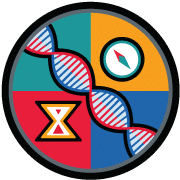Voyages of Discovery
Voyages of discovery, the first tentative reaches ino an unknown world. The period of Renaissance and Reformation, brought to Europe, a scientific and philosophical revolution. It was a time of questioning and scientific enquiry, which was as much about a desire for knowledge for it’s own sake, as for the commerce and colonialization that came in it’s wake.
It underpinned the voyages of discovery undertaken by Europeans and spun the world into a new era of mighty clashes of opposing forces, not just nations but beliefs and cultures as well..
- The Portuguese led the way, Prince Henry of Portugal had captured Northern Ceuta on the north coast of Africa in 1415.
- He set up schools of navigation, a training ground for Portuguese sailors to learn the skills needed to become master explorers. They explored the African coasts, pushing a bit further each time.
- This was an amazing achievement, these sailors relied upon Greek maps drawn a thousand years earlier.
- Their ships were not suitable for deep ocean sailing and their primitive instruments meant they had to cling to the coastlines as they struggled to navigate.
- They were inventive and innovative and created ocean going vessels. The further development of the magnetic compass, the astrolabe, cross staff and quadrant, allowed latitude to be measured.
The Portuguese pushed out further into the world, from Africa to India, until Vasco de Gama finally crossed the Indian Ocean to Southern India. This then opened up a new trade route, the desire to find new markets to exploit, drove the voyages of discovery, Spain, Portugal, England, France and the Netherlands all vied with each other.
- Exploration became more ambitious.
- Columbus sailed across the Atlantic to find a westerly route to Asia.
- His failure to realise that what he had discovered was America and not Asia, had little to do with thinking the Earth was flat, navigators at that time believed it was spherical but due to a miscalculation of the presumed size of the Earth.
- Ferdinand Magellan followed, his crew being the first Europeans to circumnavigate the globe.
- He, or one of his ships, may have been the first to spot the Falkland Islands. The question is, whether or not one of his ships, which had left the main party as it hung to the coast, made it the 300 miles East of the Straits of Magellan to the Falklands.
Spain and Portugal clashed mightily over their desire to explore and control the globe, to the extent that in 1494, Pope Alexander VI negotiated a treaty that divided the world along a line drawn South across the Atlantic. West was Spanish, all to the East was Portuguese!
To quote Magellan as he was the first to cross the Pacific and onwards to his death;
“May the ocean always be as calm and benevolent as it is today. In this hope I name it the Pacific Ocean”
